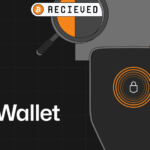Last Jump Crypto’s TerraUSD Misrepresentation Sec Paid 123M Settlement
Tai Mo Shan, a Jump Crypto subsidiary, announced via its Twitter account that it has come to a settlement with the US SEC over 123 million dollars. This was the only mention the KOL made without diving further into the case details.
SEC Allegations and Settlement Details
The SEC accused Tai Mo Shan who signed a 135 million dollar deal with Terraform Labs in 2021 to buy the currencies at a hefty discount. The case resolved claims that the firm had instigated investors into believing that the algorithm rom Tucker Stablecoin would never fail. UST’s 1:1 peg to the dollar was a myth perpetuated as per the SEC complaints. Gary Gensler, the chair regularly emphasized how the importance of the safety net for millions of US citizens was betrayed due to a few millions being traded.
UST’s Collapse and Industry Fallout
The firm, with a now global presence, took significant hits on 8th May. They single handedly made majorite the third largest on chain basis and did so through USD. Later it became the focal point for manipulative trading on the exchange. Their USD peg was abused furtherly triggering a sell off of nearly 285 million dollars on May the 10th, suspending leverage on crypto currencies boosting panic selling across the sector.
This manipulation and tight costing insist after this concentrated global attention tighten investor regulations and suffocating growth in upcoming future legislation such as stablecoins act in the US in 2024 aiding the Lummis-Gillbrand.
It also got the ball rolling on the formal investigation of Terraform Labs and its head, Do Kwon, which ultimately resulted in a $4.4 billion settlement, among the biggest enforcement actions in the history of cryptocurrency.
Related Legal Action Against Jump Trading
On a separate note, another crypto game developer Fracture Labs is suing Jump Trading for alleged token manipulation of the DIO gaming token, claiming that the firm employed a ‘pump and dump’ scheme. The plaintiffs assert that the firm sold off its DIO tokens at a significant price and then contributed to the token collapse which resulted in losses.
This sequence of events stresses the increasing burden of compliance and the legal challenges which the crypto firms face all over the world.








